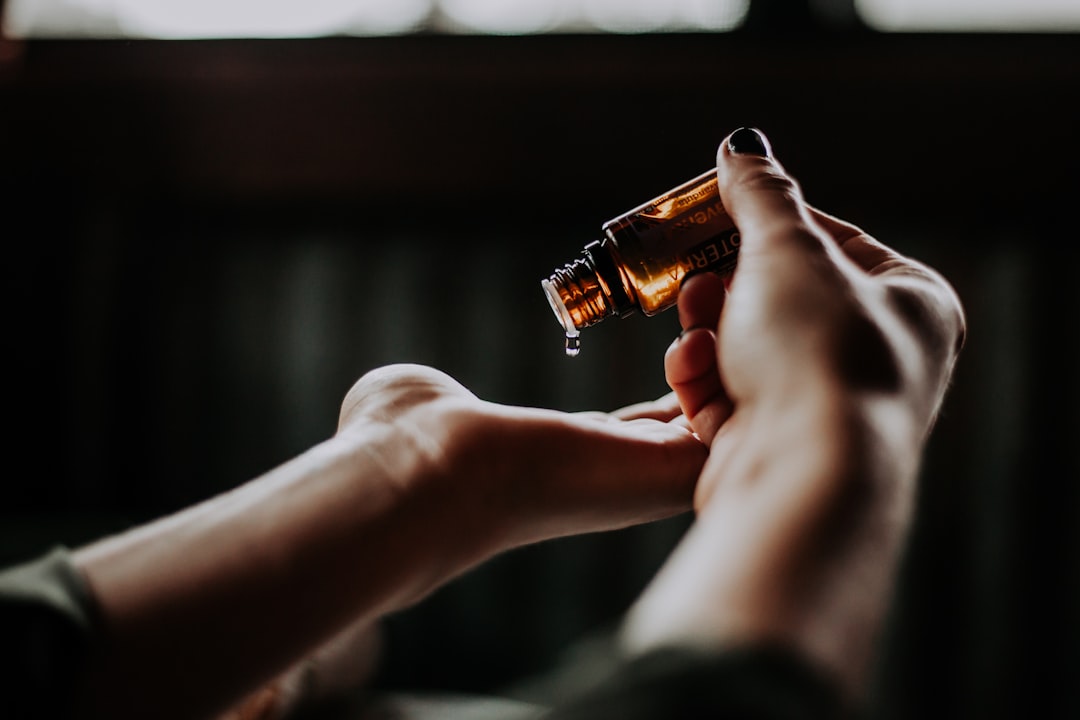Understanding your skin type is the first step in choosing the right moisturizer for your skin. There are generally four main skin types: dry, oily, combination, and sensitive. Dry skin is often characterized by flakiness, tightness, and a lack of moisture. Oily skin, on the other hand, tends to produce excess sebum, leading to a shiny complexion and potential acne breakouts. Combination skin is a mix of both dry and oily, with some areas of the face being dry and others being oily. Sensitive skin is easily irritated and prone to redness, itching, and burning.
For those with dry skin, it’s important to look for a moisturizer that is rich in emollients and humectants to help lock in moisture and prevent water loss from the skin. Oily skin types should opt for oil-free, non-comedogenic moisturizers that won’t clog pores or exacerbate oiliness. Combination skin requires a balance of hydration and oil control, so a lightweight, non-greasy moisturizer is ideal. Lastly, those with sensitive skin should seek out fragrance-free, hypoallergenic moisturizers that are gentle and soothing.
Understanding your skin type is crucial in selecting the right moisturizer that will address your specific skincare needs and concerns.
When it comes to understanding your skin type, it’s important to consider various factors such as genetics, environment, and lifestyle. Genetics play a significant role in determining your skin type, as it can dictate how much oil your skin produces, its natural moisture levels, and its sensitivity. Environmental factors such as climate, pollution, and sun exposure can also impact your skin type. For example, those living in dry climates may experience drier skin, while individuals in humid environments may struggle with excess oil production.
Lifestyle choices such as diet, stress levels, and skincare habits can also influence your skin type. A poor diet high in processed foods and sugar can lead to inflammation and skin issues, while chronic stress can disrupt the skin’s natural balance. Additionally, using harsh skincare products or over-exfoliating can strip the skin of its natural oils, leading to dryness or increased oil production as a result of the skin trying to compensate.
By taking all these factors into consideration, you can gain a better understanding of your skin type and make more informed decisions when selecting the right moisturizer for your specific needs.
Summary
- Understanding your skin type is crucial for choosing the right moisturizer
- For dry skin, look for moisturizers with ingredients like hyaluronic acid and glycerin
- Oily skin benefits from oil-free, non-comedogenic moisturizers with ingredients like salicylic acid
- Combination skin requires a moisturizer that balances hydration without clogging pores
- Sensitive skin needs gentle, fragrance-free moisturizers with soothing ingredients like aloe vera
- SPF is essential in moisturizers to protect all skin types from sun damage
- Incorporate moisturizers into your skincare routine by applying them after cleansing and before sunscreen
Choosing the Right Moisturizer for Dry Skin
Choosing the right moisturizer for dry skin is crucial in providing the hydration and nourishment that this skin type needs. Look for moisturizers that are rich in emollients such as shea butter, cocoa butter, or oils like almond oil or avocado oil. These ingredients help to soften and smooth the skin, sealing in moisture and preventing water loss. Additionally, humectants like hyaluronic acid and glycerin are essential for attracting water to the skin and keeping it hydrated throughout the day.
Cream-based moisturizers are often the best choice for those with dry skin, as they provide a thicker consistency that helps to create a protective barrier on the skin. Avoid lightweight lotions or gels, as they may not provide enough hydration for dry skin types. It’s also important to look for moisturizers that contain ceramides, which are lipids that help to restore the skin’s natural barrier and prevent moisture loss.
When choosing a moisturizer for dry skin, it’s important to avoid products that contain alcohol or fragrances, as these can further dry out the skin and cause irritation. Opt for gentle, fragrance-free formulas that are specifically designed for dry or sensitive skin.
In addition to using a moisturizer, those with dry skin should also consider incorporating a hydrating serum or facial oil into their skincare routine to provide an extra boost of moisture. These products can be used before applying moisturizer to help lock in hydration and improve the overall texture and appearance of dry skin.
Finding the Best Moisturizer for Oily Skin
Finding the best moisturizer for oily skin involves looking for lightweight, oil-free formulas that won’t clog pores or contribute to excess shine. Look for moisturizers labelled as “non-comedogenic,” which means they are specifically formulated not to block pores. These types of moisturizers are often water-based and absorb quickly into the skin without leaving a greasy residue.
When it comes to ingredients, opt for oil-free moisturizers that contain mattifying agents such as silica or dimethicone to help control shine throughout the day. Additionally, look for products that contain ingredients like niacinamide or salicylic acid, which can help regulate oil production and prevent breakouts.
Gel-based moisturizers are also a great option for oily skin types, as they provide lightweight hydration without adding extra oil to the skin. These types of moisturizers are often cooling and refreshing on the skin, making them ideal for those with oily or acne-prone skin.
It’s important to note that even though you have oily skin, it still needs hydration. Skipping moisturizer altogether can actually lead to an overproduction of oil as the skin tries to compensate for the lack of moisture. Therefore, finding a lightweight, oil-free moisturizer that provides adequate hydration is key in maintaining a balanced complexion.
In addition to using a suitable moisturizer, those with oily skin should also consider incorporating exfoliation into their skincare routine to help remove excess oil and dead skin cells. This can help prevent clogged pores and breakouts while improving the overall texture of the skin.
Selecting a Moisturizer for Combination Skin
Selecting a moisturizer for combination skin can be tricky, as it requires finding a product that can provide hydration without exacerbating oiliness in certain areas of the face. Look for lightweight, non-greasy moisturizers that are formulated specifically for combination skin. These types of moisturizers are often designed to balance hydration levels without adding extra oil to the T-zone or other oily areas.
Gel-based moisturizers are a great option for combination skin, as they provide hydration without feeling heavy or greasy on the skin. Additionally, look for products that contain ingredients like hyaluronic acid or glycerin to help attract water to drier areas of the face while maintaining a matte finish in oilier areas.
Another option for those with combination skin is to use different moisturizers on different parts of the face. For example, using a lightweight gel moisturizer on oily areas and a richer cream on drier areas can help address the specific needs of each area without overloading the skin with unnecessary moisture.
It’s important to pay attention to how your skin changes throughout the year and adjust your moisturizer accordingly. For example, during the winter months when the air is drier, you may need a richer moisturizer for drier areas of the face. In contrast, during the summer when humidity levels are higher, you may opt for a lighter formula to combat excess oil production.
In addition to using a suitable moisturizer, those with combination skin should also consider using targeted skincare products such as serums or spot treatments to address specific concerns in different areas of the face. This can help maintain balance and ensure that each part of the face receives the appropriate care it needs.
Tips for Sensitive Skin: Choosing the Right Moisturizer
Choosing the right moisturizer for sensitive skin requires extra care and attention to avoid potential irritation or allergic reactions. Look for fragrance-free and hypoallergenic moisturizers that are specifically formulated for sensitive skin. Fragrances can be a common irritant for sensitive skin types, so opting for unscented products can help reduce the risk of adverse reactions.
In addition to being fragrance-free, sensitive skin types should also avoid products that contain potential irritants such as alcohol, dyes, or essential oils. These ingredients can cause redness, itching, or burning in sensitive individuals, so it’s important to read ingredient labels carefully and opt for gentle formulas.
When it comes to texture, sensitive skin types may benefit from using lightweight lotions or creams that are easily absorbed into the skin without leaving a heavy or greasy residue. Look for moisturizers that contain soothing ingredients such as aloe vera, chamomile, or oat extract to help calm and comfort sensitive skin.
It’s also important to perform patch tests when trying out new products to ensure they don’t cause any adverse reactions. Apply a small amount of the product to a discreet area of the skin (such as behind the ear) and monitor for any signs of redness, itching, or irritation before applying it to the entire face.
In addition to using a suitable moisturizer, those with sensitive skin should also be mindful of other skincare products they use, such as cleansers and exfoliants. Opt for gentle, non-abrasive products that won’t further irritate or disrupt the delicate balance of sensitive skin.
The Importance of SPF in Moisturizers for All Skin Types

The importance of SPF in moisturizers cannot be overstated when it comes to protecting your skin from harmful UV rays. Regardless of your skin type, incorporating SPF into your daily skincare routine is essential in preventing sun damage, premature ageing, and reducing the risk of skin cancer.
For those with dry or sensitive skin, it’s important to look for moisturizers that contain SPF along with hydrating and soothing ingredients. This can help streamline your skincare routine by combining hydration and sun protection into one product while minimising potential irritation from using multiple products.
Oily and combination skin types should opt for lightweight, non-greasy SPF moisturizers that won’t exacerbate oiliness or clog pores. Look for oil-free formulas that provide broad-spectrum protection against both UVA and UVB rays while controlling shine throughout the day.
When selecting an SPF moisturizer, it’s important to choose a broad-spectrum formula with an SPF of at least 30. This level of protection is recommended by dermatologists to shield against UVB rays that cause sunburns and UVA rays that contribute to premature ageing.
In addition to using an SPF moisturizer on a daily basis, it’s also important to reapply sunscreen every two hours when exposed to direct sunlight or after swimming or sweating. This is especially crucial during peak sun hours (10 am – 4 pm) when UV rays are strongest.
How to Incorporate Moisturizers into Your Skincare Routine
Incorporating moisturizers into your skincare routine is essential in maintaining healthy, hydrated skin regardless of your specific skin type. After cleansing your face in the morning and evening, apply a pea-sized amount of moisturizer onto your fingertips and gently massage it into your face using upward motions.
For those with dry or sensitive skin types, consider using a hydrating serum or facial oil before applying moisturizer to provide an extra layer of moisture and nourishment. This can help lock in hydration and improve the overall texture and appearance of dry or sensitive skin.
If you have oily or combination skin, you may want to consider using a mattifying primer before applying makeup on top of your moisturizer. This can help control shine throughout the day while providing a smooth base for makeup application.
In addition to using a daily moisturizer, consider incorporating a weekly hydrating mask or overnight treatment into your skincare routine to provide an extra boost of moisture when needed. This can help replenish hydration levels and improve the overall health and appearance of your skin.
It’s important to listen to your skin’s needs and adjust your skincare routine accordingly based on changes in climate, lifestyle factors, or any specific concerns you may have at any given time.
In conclusion, understanding your specific skin type is crucial in selecting the right moisturizer that will address your individual skincare needs and concerns. Whether you have dry, oily, combination or sensitive skin, there are specific considerations and ingredients you should look out for when choosing a suitable moisturizer. Additionally, incorporating SPF into your daily skincare routine is essential in protecting your skin from harmful UV rays regardless of your specific skin type. By following these tips and guidelines on choosing the right moisturizer for your individual needs and incorporating it into your skincare routine effectively, you can maintain healthy, hydrated and radiant-looking skin all year round.
Discover the truth behind common skincare myths with our related article, “5 Skincare Myths Debunked: Separating Fact from Fiction.” Learn about the misconceptions that may be affecting your skincare routine and how to navigate through them. Whether you’re a skincare novice or a seasoned enthusiast, our article “The Beginner’s Guide to Building a Skincare Routine” provides essential tips for creating a personalised regimen that suits your skin’s needs. Additionally, delve into the benefits and considerations of niacinamide with “Niacinamide: Why Concentrations Over 5% May Not Be Better,” to make informed decisions about incorporating this popular ingredient into your skincare routine. (source)
FAQs
What are the different skin types?
There are generally four different skin types: normal, dry, oily, and combination. Normal skin is well-balanced and not too oily or dry. Dry skin lacks moisture and can feel tight and flaky. Oily skin produces excess sebum, leading to a shiny complexion and potential acne. Combination skin is a mix of oily and dry areas.
Why is it important to use a moisturizer?
Moisturizers help to hydrate the skin, maintain its natural moisture barrier, and prevent water loss. They can also provide essential nutrients and protection from environmental factors.
How do I choose the right moisturizer for my skin type?
For normal skin, a lightweight, non-greasy moisturizer is suitable. Dry skin benefits from rich, creamy moisturizers with ingredients like hyaluronic acid and glycerin. Oily skin should opt for oil-free, non-comedogenic moisturizers. Combination skin may require different moisturizers for different areas of the face.
What ingredients should I look for in a moisturizer for dry skin?
Moisturizers for dry skin should contain ingredients like hyaluronic acid, glycerin, shea butter, and ceramides to help lock in moisture and repair the skin’s barrier.
Can oily skin benefit from using a moisturizer?
Yes, oily skin still needs hydration, but it’s important to choose oil-free, non-comedogenic moisturizers that won’t clog pores or exacerbate oiliness.
How often should I apply moisturizer?
It’s recommended to apply moisturizer twice a day, in the morning and evening, after cleansing the skin. However, individuals with very dry skin may benefit from additional applications throughout the day.
Are there any specific considerations for sensitive skin when choosing a moisturizer?
Those with sensitive skin should look for fragrance-free and hypoallergenic moisturizers to minimize the risk of irritation. It’s also important to patch-test new products before applying them to the entire face.




